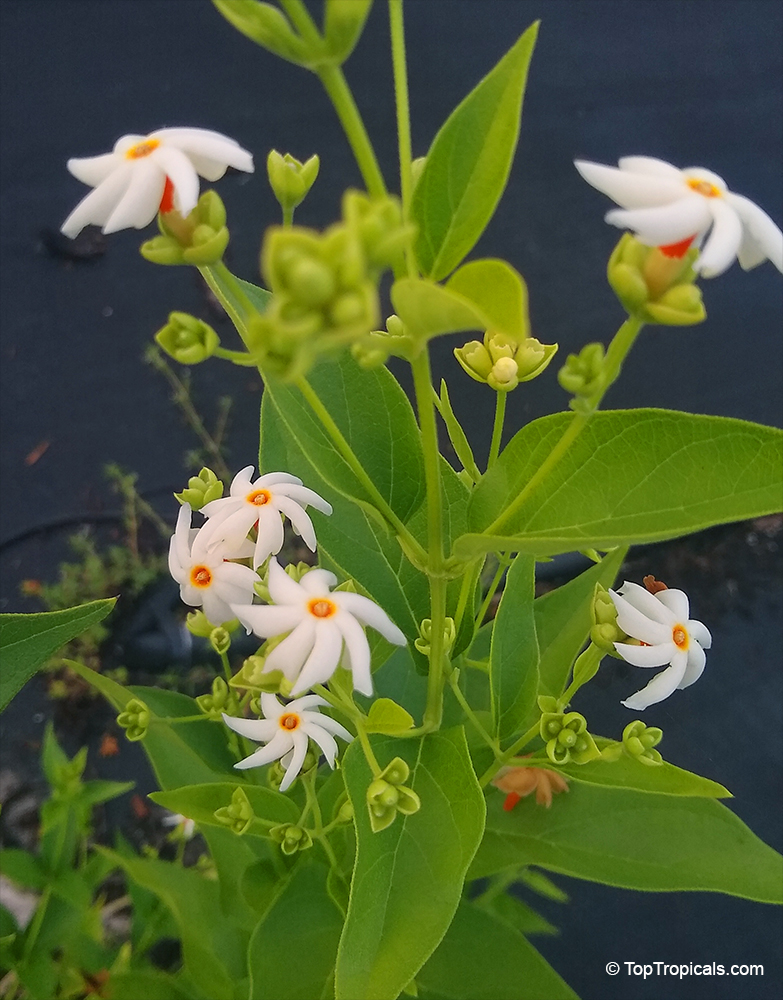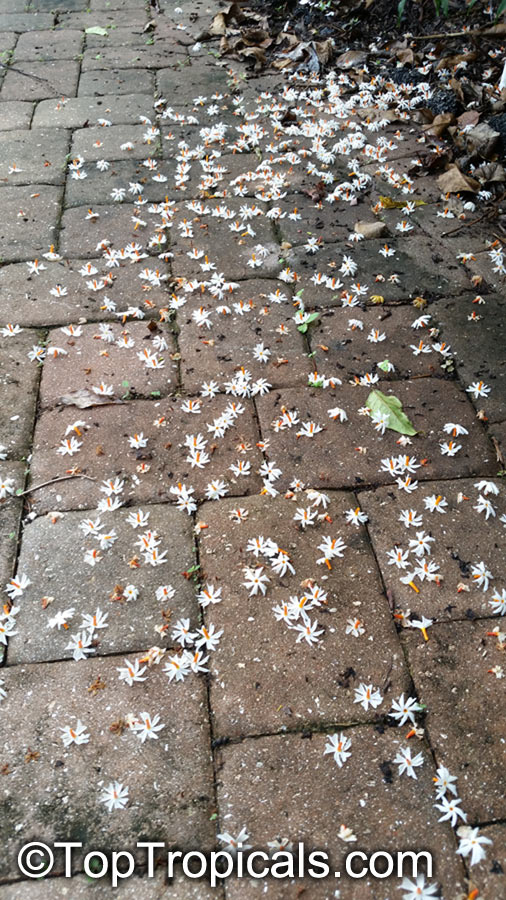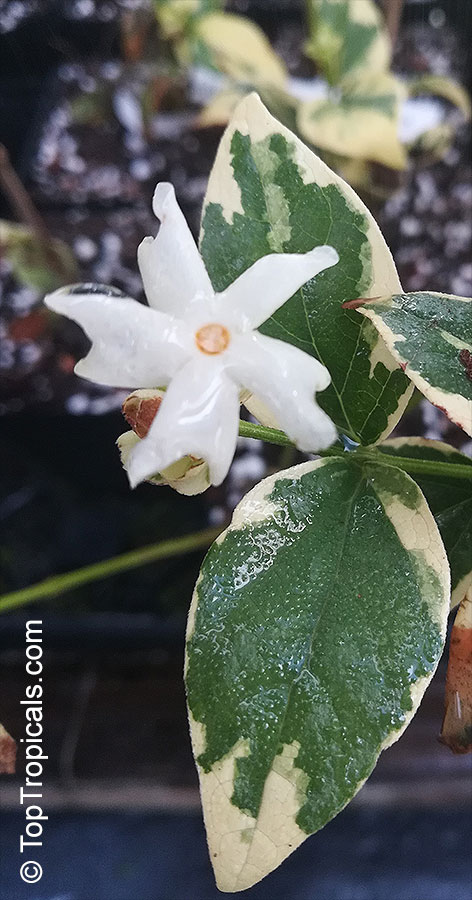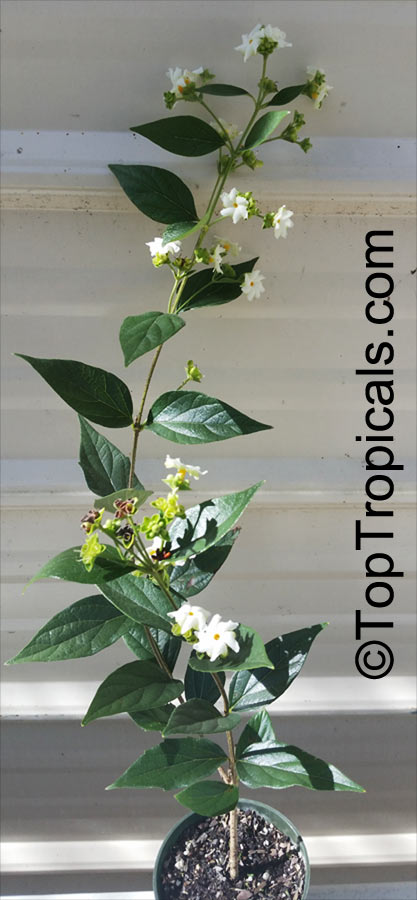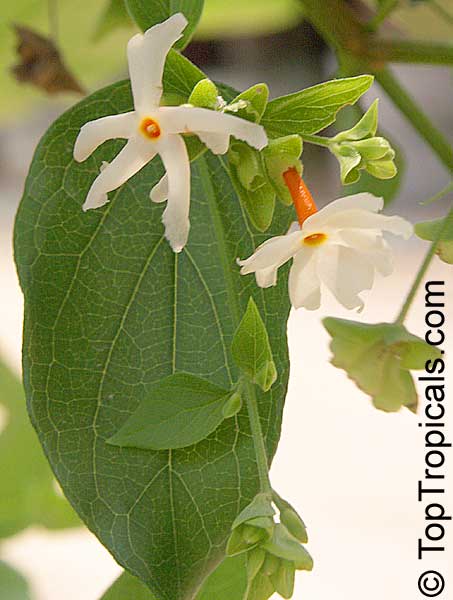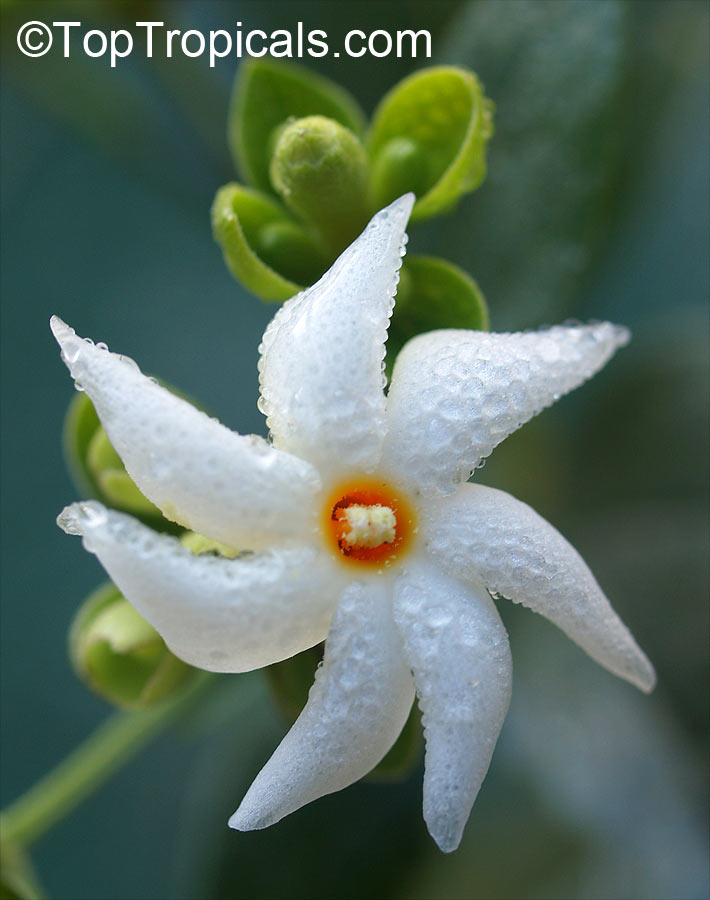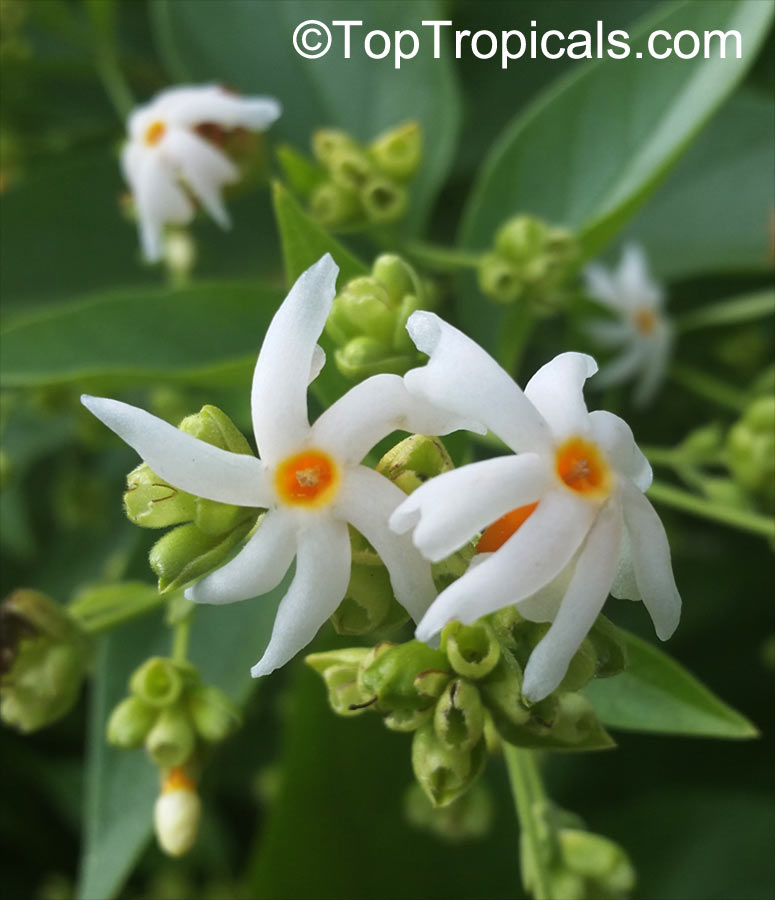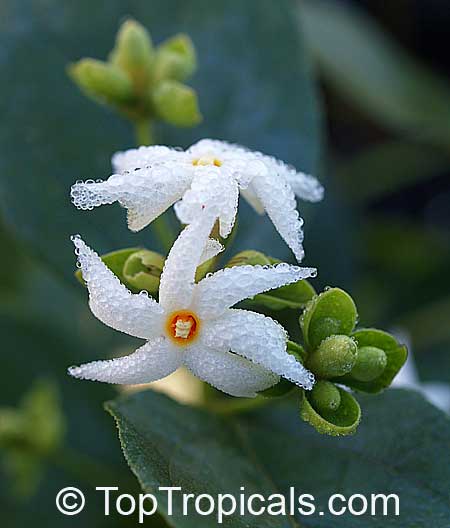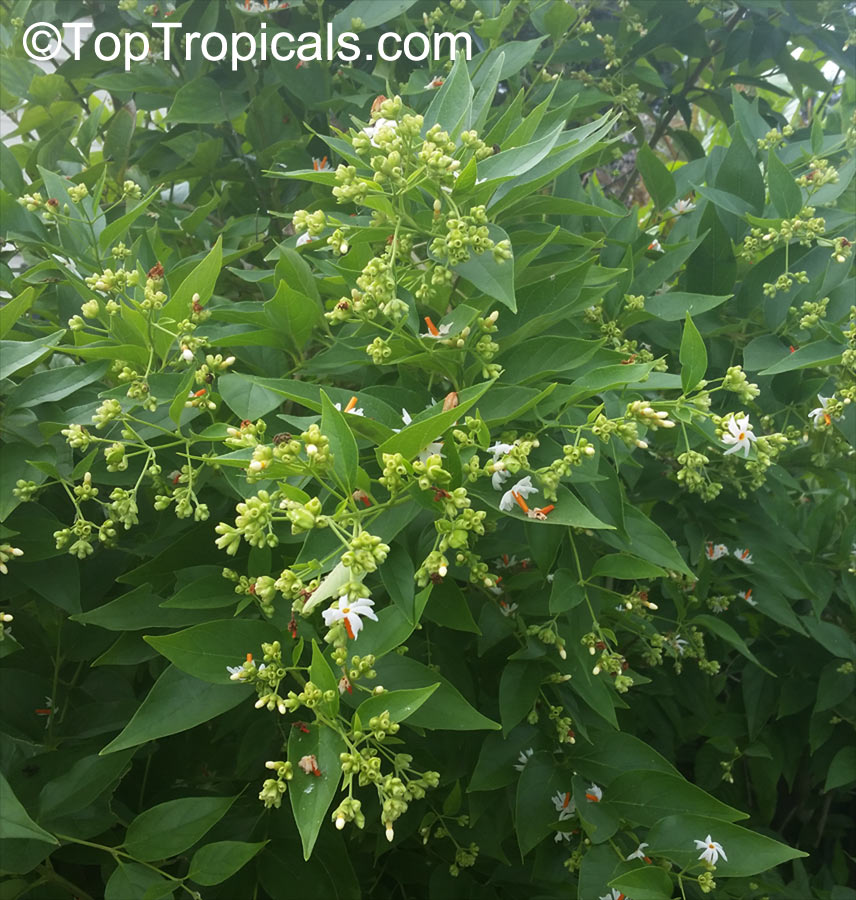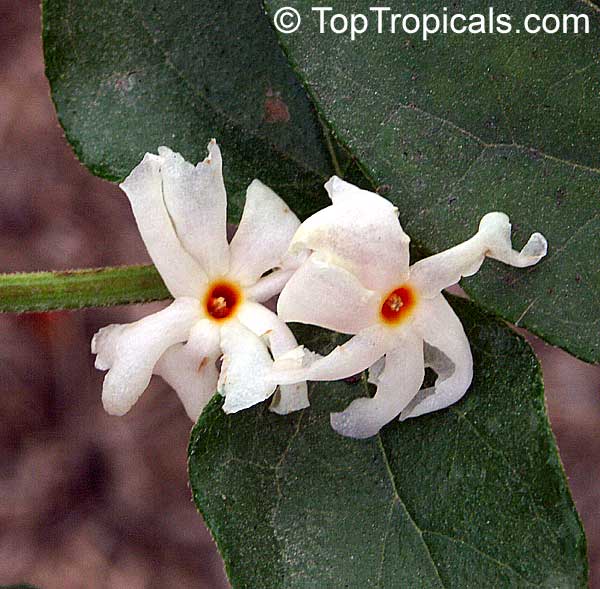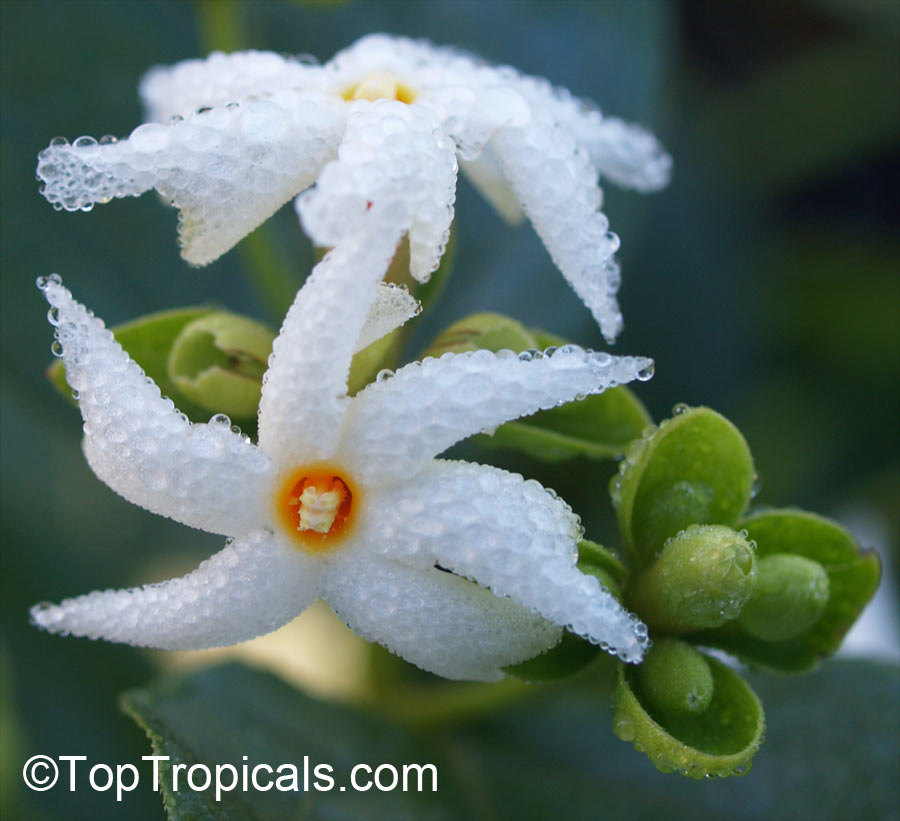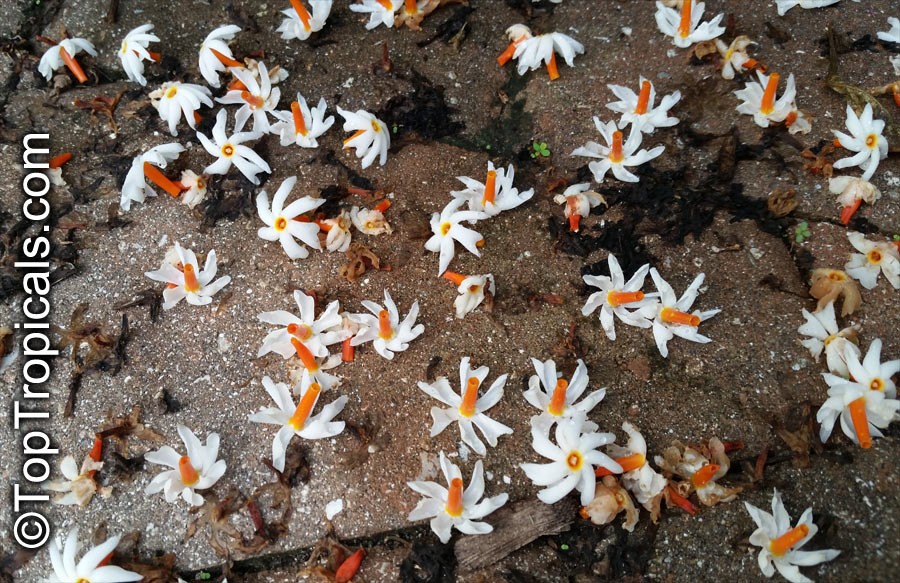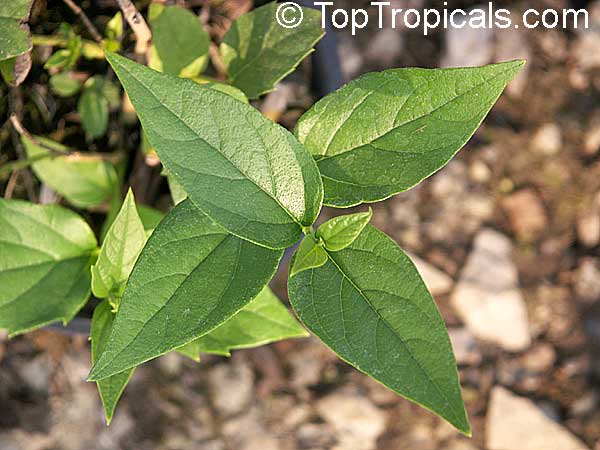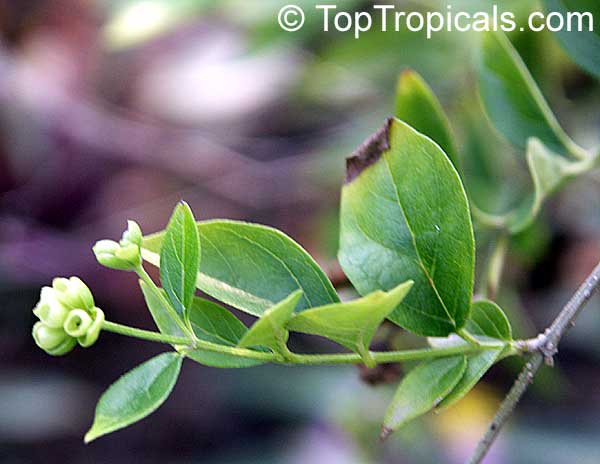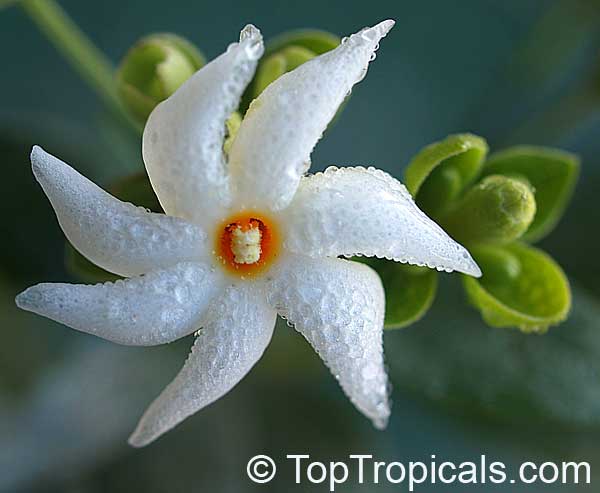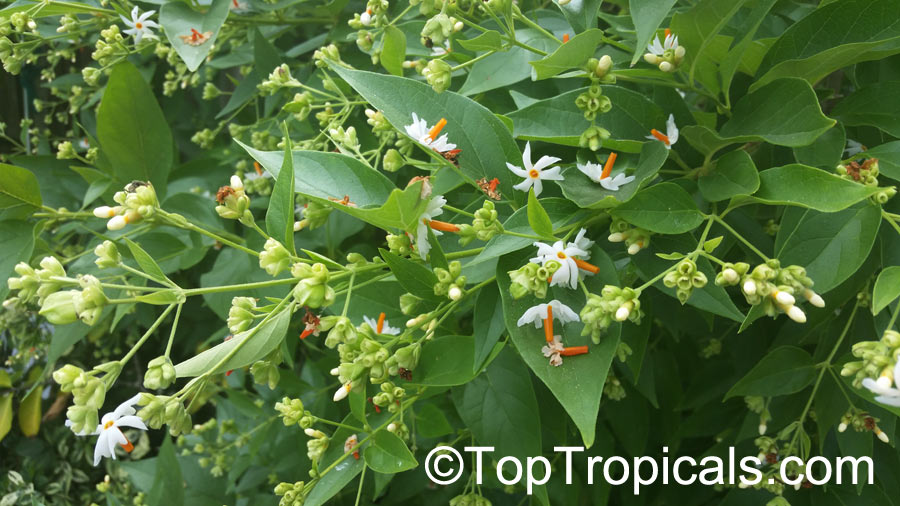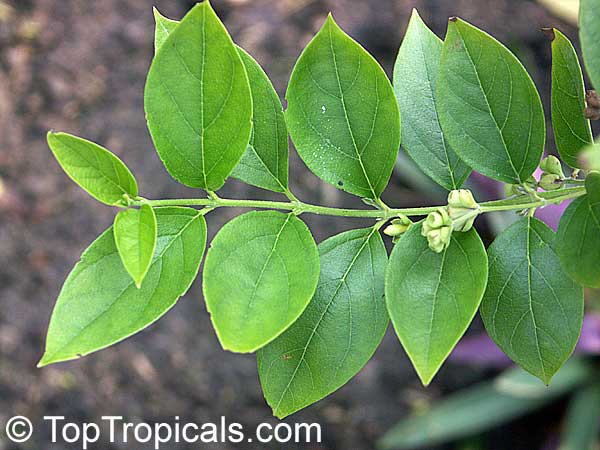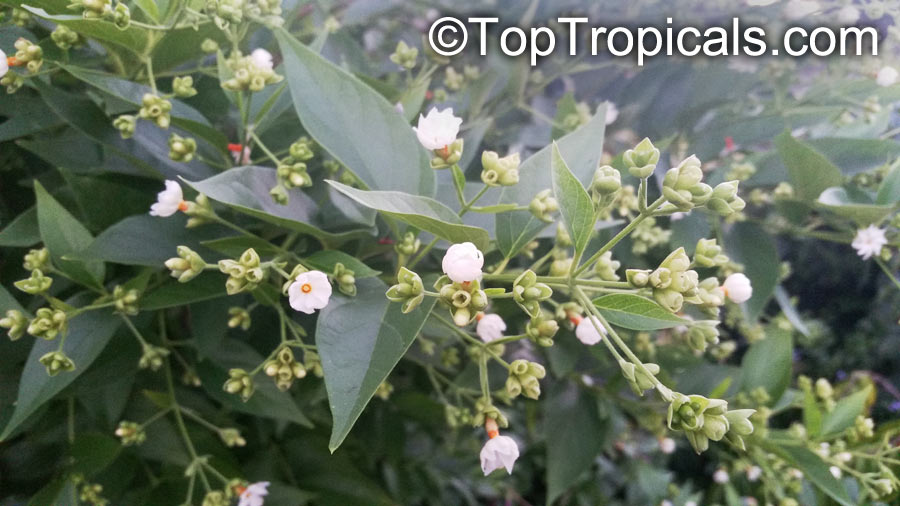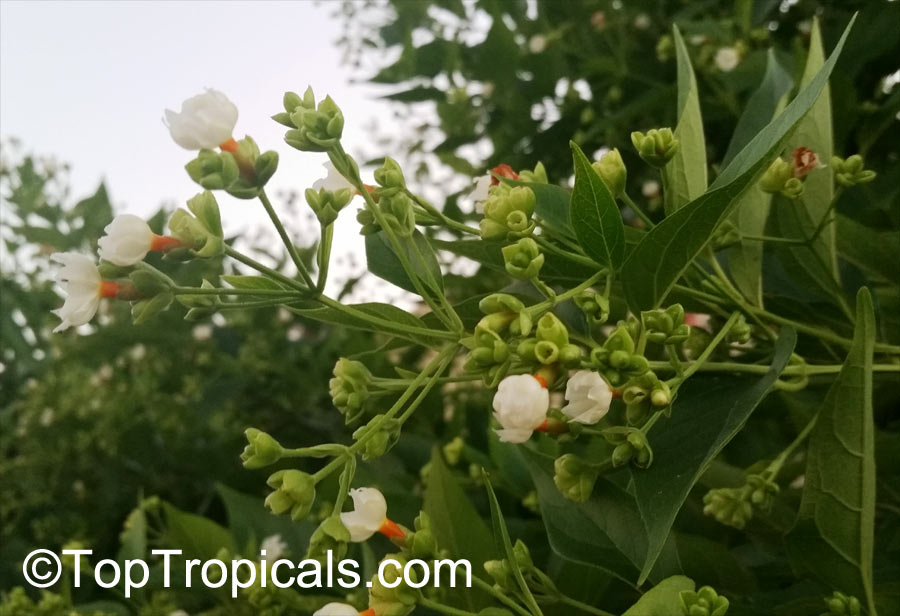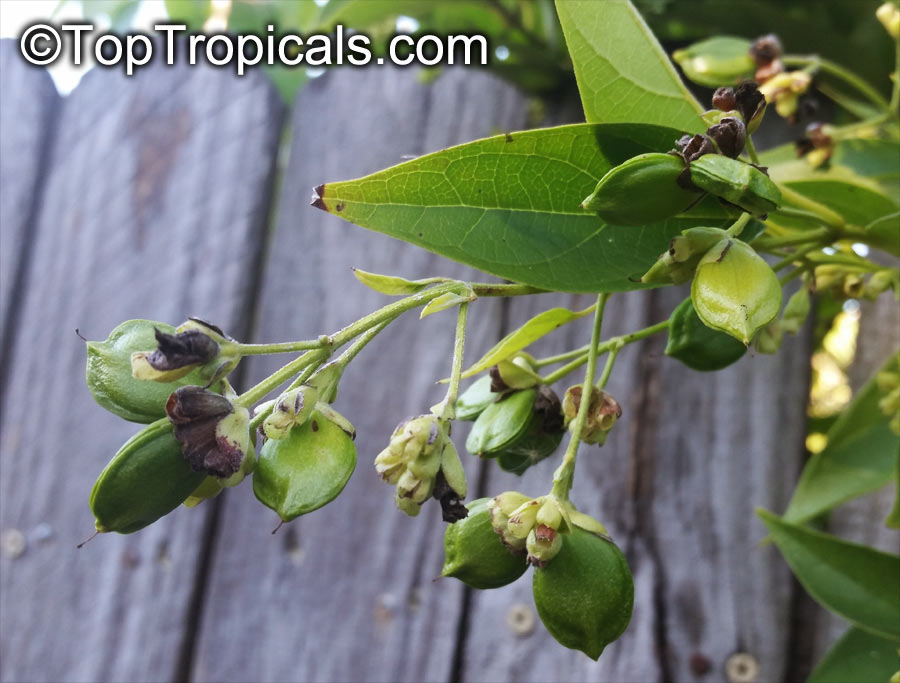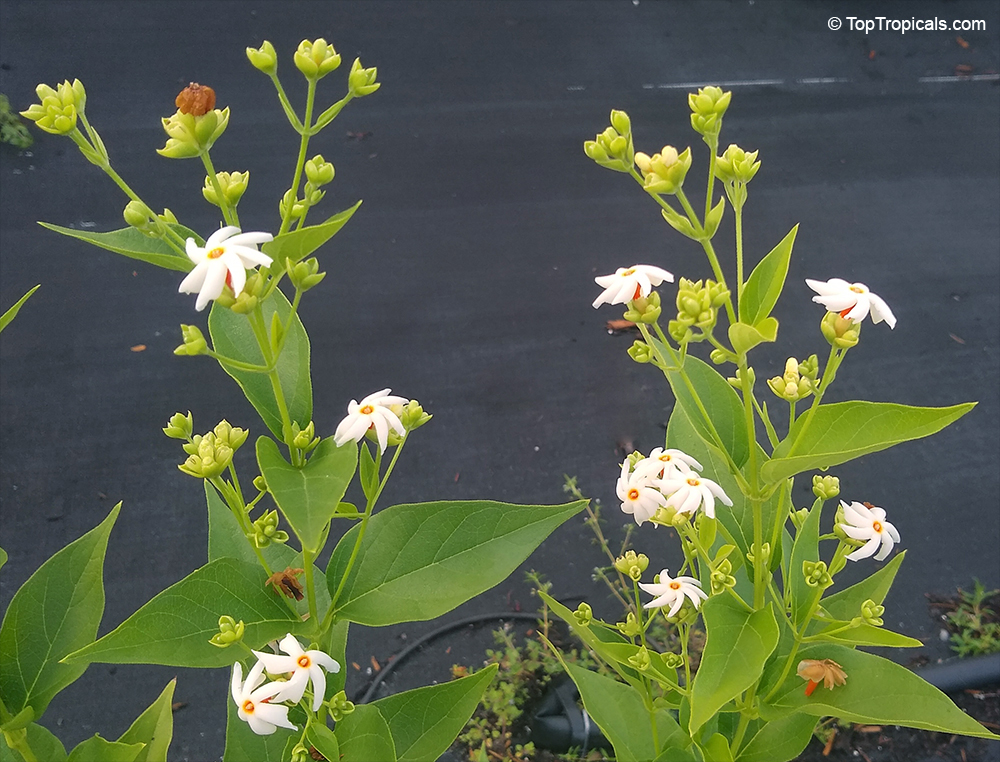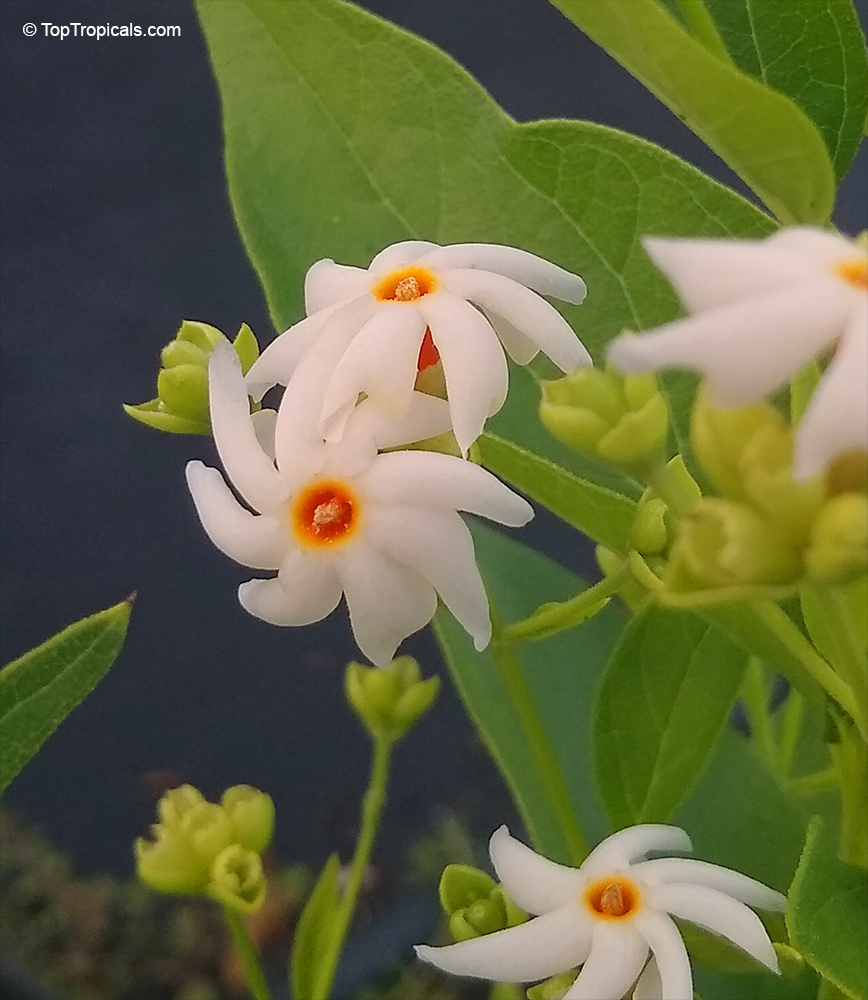Nyctanthes arbor-tristis (Parijat)
Botanical name: Nyctanthes arbor-tristis
Common names: Parijat, Arbor Tristis, Sad tree, Night Jasmine, Harsingar
Family: Oleaceae (Formerly:Verbenaceae)
Origin: South Asia, India
Hardiness: 30°F












Nyctanthes arbor-tristis (Arbor Tristis, Night-flowering Jasmine) is a large shrub or small tree native to South Asia and India. It typically grows 5-10 feet tall but can reach up to 20 feet in favorable conditions. The plant has rough, hairy leaves and produces clusters of highly fragrant white flowers with bright orange centers. Blossoms open at night, fill the air with perfume, and fall by morning, carpeting the ground with petals. This combination of beauty and fleeting bloom has long made it one of the most admired night-flowering ornamentals.
Nyctanthes arbor-tristis prefers full sun to partial shade and well-drained soil with moderate watering. It is hardy to the mid 30F for short periods, placing it in USDA Zone 10-11 with frost protection recommended. The plant flowers in late summer to fall in many tropical gardens and responds well to monthly fertilization. It is often grown near patios or walkways where its fragrance can be enjoyed at night. While its flowers and leaves are mentioned in traditional medicine and temple rituals, it is primarily cultivated today as an ornamental tree prized for its unique nocturnal blooms.
In addition to its medicinal and spiritual importance, Nyctanthes arbor-tristis is also cherished for its beauty and romantic lore. One tale tells that Lord Krishna brought the tree to earth, sparking a quarrel between his wives Satyabhama and Rukmini. Another legend speaks of Princess Parijat, who loved Surya, the Sun God. After her tragic death, the gods granted her a new life as this tree, whose pure white flowers with blazing orange centers symbolize the sun in her heart. The blossoms release fragrance at night, but fall at dawn like tears, unable to bear the rays of the sun.
